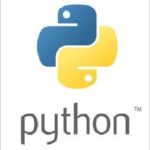Are we witnessing the convergence of HPC, big data analytics, and AI? Once, these were separate domains, each with its own system architecture and software stack, but the data deluge is driving their convergence. Traditional big science HPC is looking more like big data analytics and AI, while analytics and AI are taking on the flavor of HPC.
Are Memory Bottlenecks Limiting Your Application’s Performance?
Often, it’s not enough to parallelize and vectorize an application to get the best performance. You also need to take a deep dive into how the application is accessing memory to find and eliminate bottlenecks in the code that could ultimately be limiting performance. Intel Advisor, a component of both Intel Parallel Studio XE and Intel System Studio, can help you identify and diagnose memory performance issues, and suggest strategies to improve the efficiency of your code.
Software-Defined Visualization with Intel Rendering Framework – No Special Hardware Needed
This sponsored post from Intel explores how the Intel Rendering Framework, which brings together a number of optimized, open source rendering libraries, can deliver better performance at a higher degree of fidelity — without having to invest in extra hardware. By letting the CPU do the work, visualization applications can run anywhere without specialized hardware, and users are seeing better performance than they could get from dedicated graphics hardware and limited memory.
Making Python Fly: Accelerate Performance Without Recoding
Developers are increasingly besieged by the big data deluge. Intel Distribution for Python uses tried-and-true libraries like the Intel Math Kernel Library (Intel MKL)and the Intel Data Analytics Acceleration Library to make Python code scream right out of the box – no recoding required. Intel highlights some of the benefits dev teams can expect in this sponsored post.
CPU, GPU, FPGA, or DSP: Heterogeneous Computing Multiplies the Processing Power
Whether your code will run on industry-standard PCs or is embedded in devices for specific uses, chances are there’s more than one processor that you can utilize. Graphics processors, DSPs and other hardware accelerators often sit idle while CPUs crank away at code better served elsewhere. This sponsored post from Intel highlights the potential of Intel SDK for OpenCL Applications, which can ramp up processing power.
Achieving the Best QoE: Performance Libraries Accelerate Code Execution
The increasing consumerization of IT means that even staid business applications like accounting need to have the performance and ease of use of popular consumer apps. Fortunately, developers now have access to a powerful group of libraries that can instantly increase application performance – with little or no rewriting of older code. Here’s a quick rundown of Intel-provided libraries and how to get them.
Intel High-Performance Python Extends to Machine Learning and Data Analytics
One of the big surprises of the past few years has been the spectacular rise in the use of Python* in high-performance computing applications. With the latest releases of Intel® Distribution for Python, included in Intel® Parallel Studio XE 2019, the numerical and scientific computing capabilities of high-performance Python now extends to machine learning and data analytics.
Making Computer Vision Real Today – For Any Application
With the demand for intelligent vision solutions increasing everywhere from edge to cloud, enterprises of every type are demanding visually-enabled – and intelligent – applications. Up till now, most intelligent computer vision applications have required a wealth of machine learning, deep learning, and data science knowledge to enable simple object recognition, much less facial recognition or collision avoidance. That’s changed with the introduction of Intel’s Distribution of OpenVINO toolkit.
Python Power: Intel SDK Accelerates Python Development and Execution
It was with one goal – accelerating Python execution performance – that lead to the creation of Intel Distribution for Python, a set of tools designed to provide Python application performance right out of the box, usually with no code changes required. This sponsored post from Intel highlights how Intel SDK can enhance Python development and execution, as Python continues to grow in popularity.
Putting Computer Vision to Work with OpenVINO
OpenVINO is a single toolkit, optimized for Intel hardware, that the data scientist and AI software developer can use for quickly developing high-performance applications that employ neural network inference and deep learning to emulate human vision over various platforms. “This toolkit supports heterogeneous execution across CPUs and computer vision accelerators including GPUs, Intel® Movidius™ hardware, and FPGAs.”












